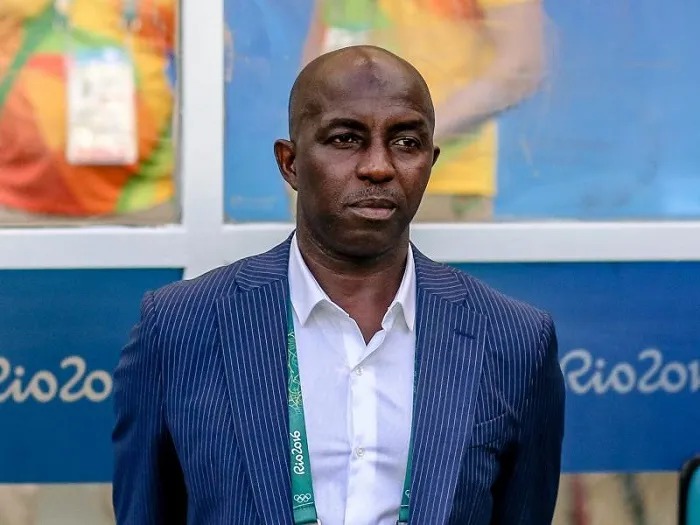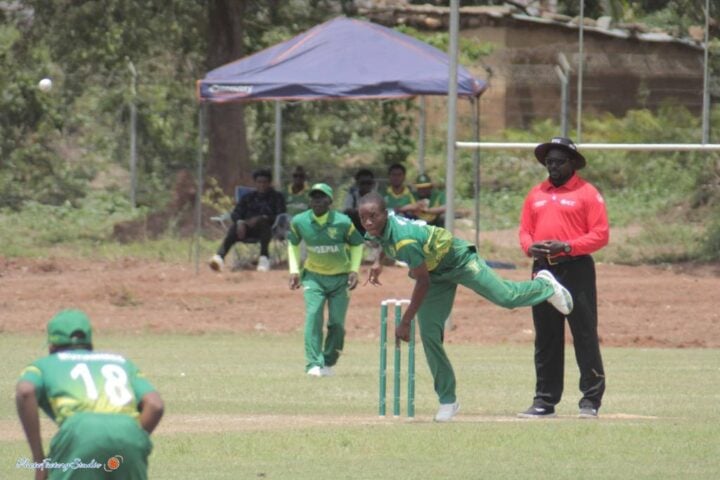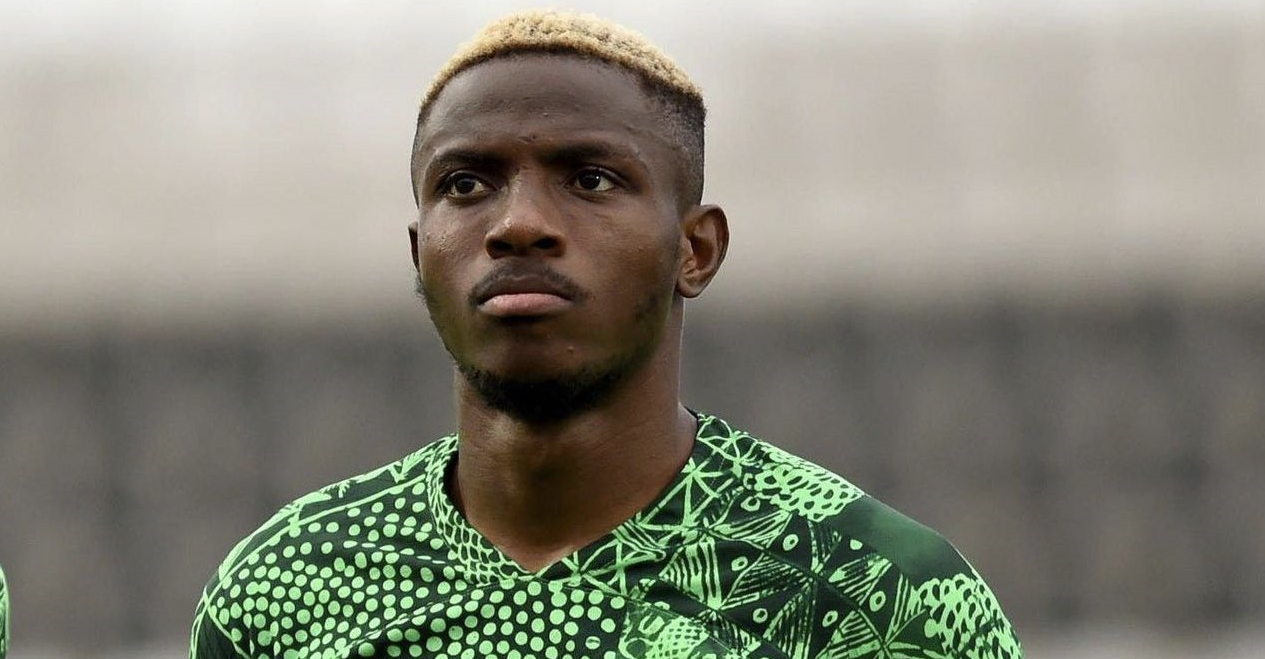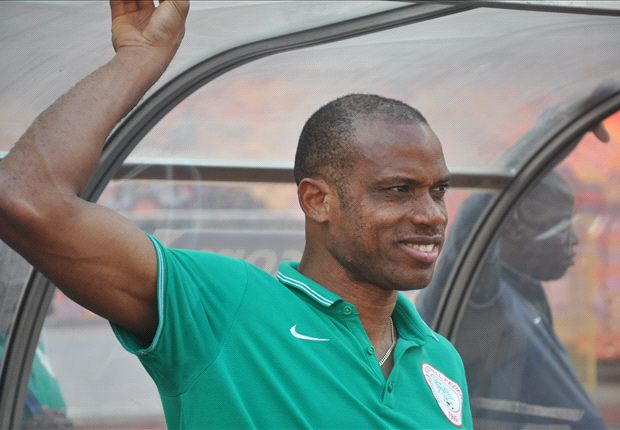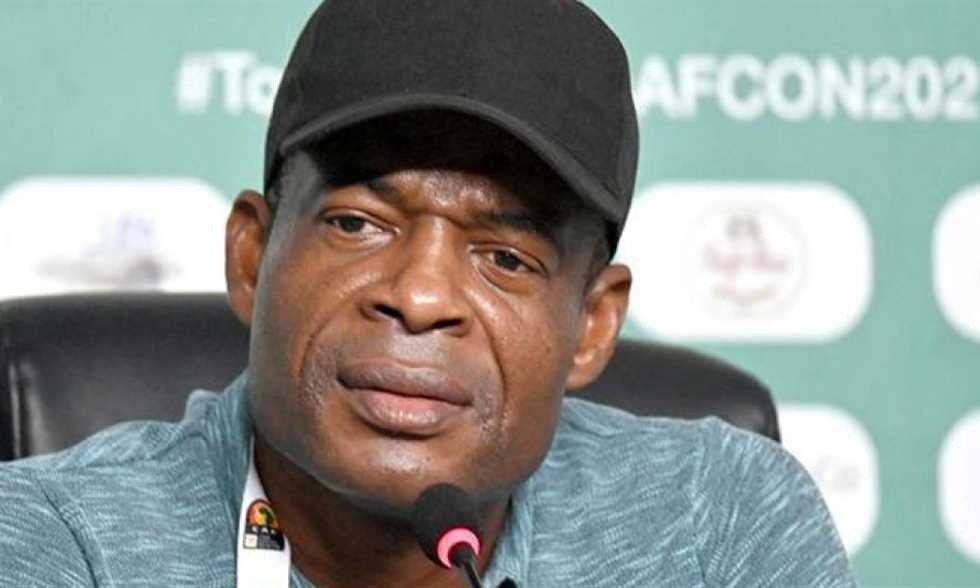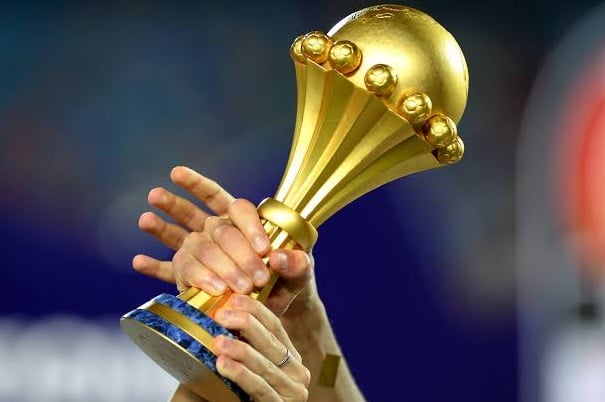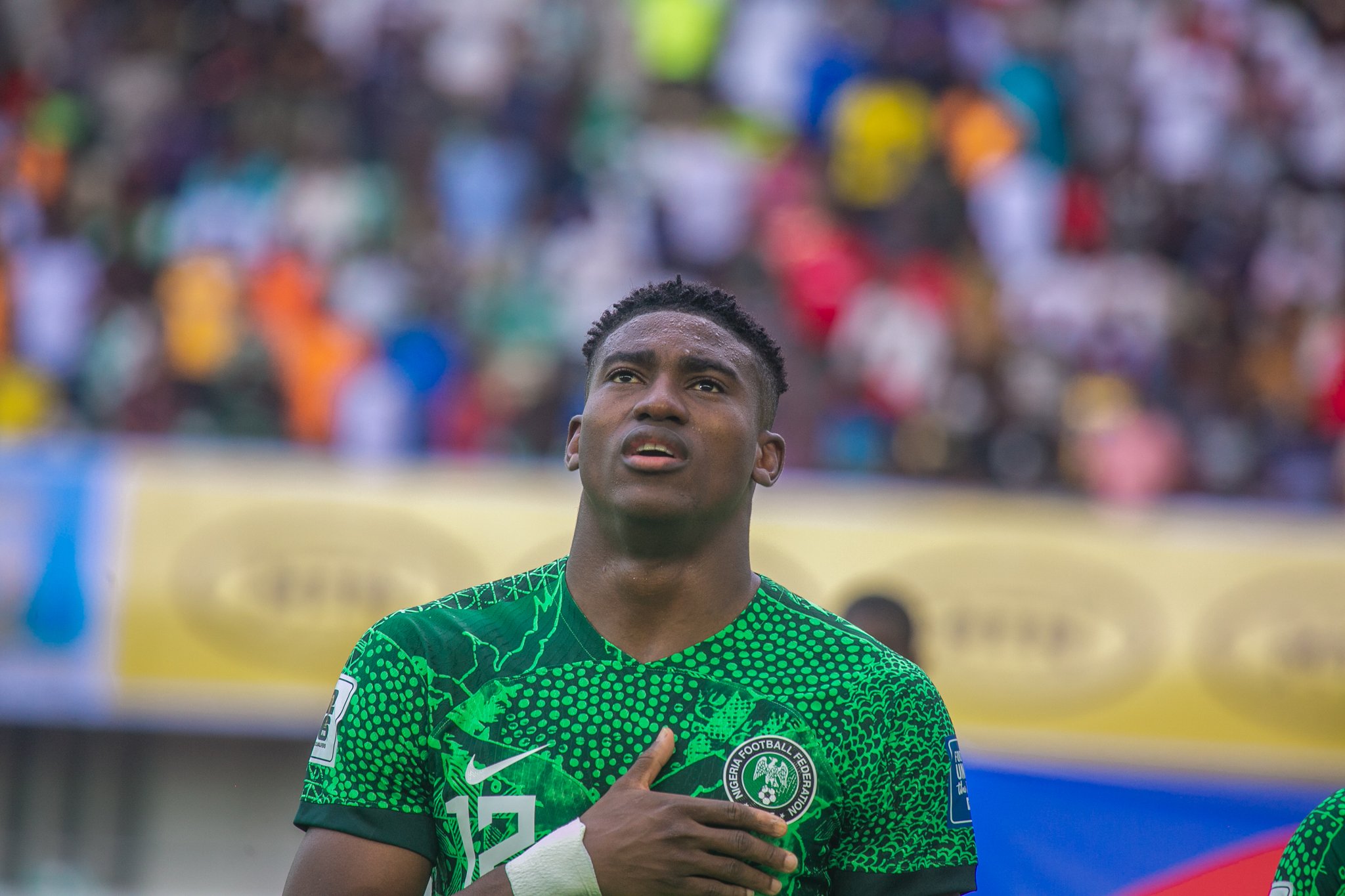BY ARUKAINO UMUKORO
“I’ll be back,” is a slogan made famous by Arnold Schwarzenegger’s character from his 1984 science fiction movie, The Terminator, ultimately about defying fate. The James Cameron-inspired franchise enjoyed six box office instalments over a 20-year period, with Schwarzenegger starring in all except one.
For former player and coach of the Super Eagles, Samson Siasia, a big fan of action movies, the New Year could be his own Terminator Salvation.
Siasia, who won the 1994 Africa Cup of Nations (AFCON) and reached the Round of 16 with the Clemens Westerhof-led Super Eagles that same year, tells Africa Interviews that he is looking forward to August 2024, when his five-year FIFA ban would end. Then, he would be able to return to football management and administration.
Advertisement
In August 2019, Siasia was banned from all football activities for life by the world football governing body, FIFA, and fined 50,000 Swiss Francs. It was claimed that he was found guilty of accepting an offer to receive bribes in an attempt to manipulate the outcome of matches. According to FIFA, Siasia’s ban was the outcome of an extensive investigation into matches that convicted Singaporean serial match-fixer, Wilson Perumal, was involved in.
However, in 2021, after his successful appeal, the Court of Arbitration for Sports (CAS) reduced Siasia’s life ban to five years and also dismissed the 50,000 Swiss Francs he had been ordered to pay.
The CAS panel ruled that the imposition of a life ban was “disproportionate for a first offence which was committed passively and which had not had an adverse or immediate effect on football stakeholders.”
Advertisement
It also noted that “the Panel considered in the particular circumstances of this matter that it would be inappropriate and excessive to impose a financial sanction in addition to the five-year ban, since the ban sanction already incorporated a financial punishment in eliminating football as a source of revenue for Mr. Siasia, and considering that Mr. Siasia had not obtained any gain or pecuniary benefit from his unethical behaviour.”
From FIFA life ban to 5 years
How do you go on with living when the most important thing that helped you achieve all you dreamed of is yanked away from you in a cloud of controversy?
Again, Siasia emphasises his innocence, stating that the FIFA ban was based on little or no evidence.
“There’s no proof to that. When you talk about corruption, is it not when money exchanges hands and all that? There was nothing. There’s no video, no evidence of any wrongdoing. Just because I was talking to a match-fixer, does it make me a match-fixer? No. That was the most annoying part of it.
Advertisement
“When you steal, you know they will catch you one day. If you are caught, you won’t be surprised that they put you in jail. If they catch a black man for doing bad things, do you think they’ll rescind their decision of imposing a life ban and give him five years? They will never give him that. They believe that all black people are corrupt, that we are thieves, criminals and all that. That’s the kind of way they look at us. But that’s not true. Yes, we have people that are stealing, corrupt people. It’s everywhere in the world. White people, black people, they’re all doing the same thing.”
Having only known football – whether as a player or coach, for three-quarters of his life, Siasia says the FIFA ban broke him.
“I was actually doing well as a coach. And out of nowhere, bang, it hit me like a slug to my chest, and it broke me down. I wasn’t prepared for it and it just kind of messed up everything. There is a reason why things happen, but this reason was just unbelievable. They accuse you of something that actually never happened. It’s very painful. And then ban you for life for what you did not do. There’s no proof to that effect. But all the same, it’s almost over.
Reviewing the impact of the ban on his career, family and life, Siasia tells me he doesn’t want to “dwell and cry about it,” even though the last five years have been tough on him.
Advertisement
“I kind of handled it,” he says with defiance. “It’s 2024, it is almost over. So, I just need to build again, to be strong moving forward. I was doing very well as a coach before this ban hit me. But it’s almost over, and I’m coming back bigger and stronger.”
He adds that if he was guilty of the accusation, the CAS wouldn’t have reduced the life ban verdict to just five years.
Advertisement
Nevertheless, he says summoning tenacity and staying strong in the face of adversity paved his path to ultimate triumph.
“The most important thing was that I fought my way back from the life ban. They reduced it to five years, because they knew I didn’t do it,” he adds.
Advertisement
He expresses gratitude to individuals and groups that supported him throughout, including footing his legal bills and paying for lawyers in Switzerland (FIFA headquarters) to appeal his case. He mentions names like the Okaros, Segun Odegbami, Bayelsa State Governor, Douye Diri; former Rivers State Governor now FCT Minister, Nyesom Wike; and Edo State Deputy Governor, Philip Shaibu. “They and other friends did a lot for me, financially and otherwise. But the NFF (Nigeria Football Federation) and the federal government didn’t do anything for me,” he says.
Although Siasia says he has moved on from that disappointment, he believes the Nigerian government could have done something to help him at least, even if it were to ask him questions about the allegations, or secure lawyers to assist him.
Advertisement
“That’s how it’s supposed to be. But they just left me on my own, and did nothing. it’s (almost) over now. Everybody has to learn from what happened to me. But the country has to do better than what they did to me. They have to do better. “
Aside from the individuals and groups who supported him throughout the ordeal, Siasia praises his wife, Eunice, for being his rock and anchor in the storm.
“My wife knew I didn’t do anything. I’ve been with her forever. So, she knows… even the women know you better than yourself… She’s awesome. She’s everything.”
They have been married for over 30 years.
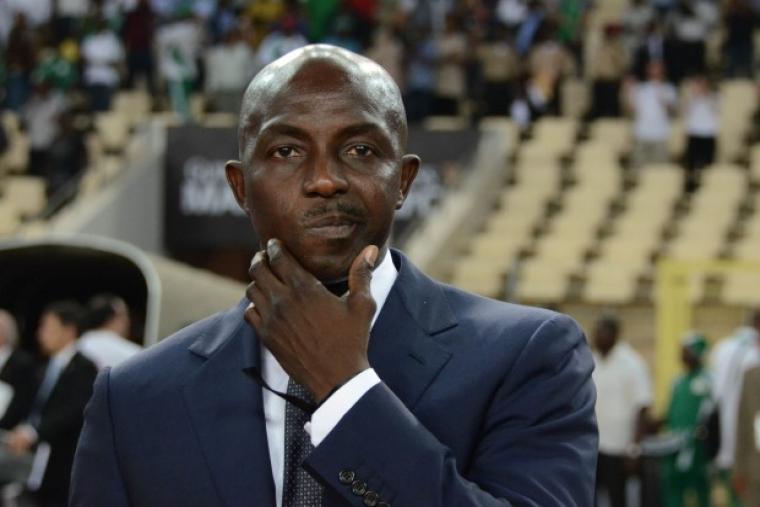
That World Cup goal
As a player, he had a stellar 20-year career, playing for major clubs in Europe, Saudi Arabia and Israel. In 1994-95 season, Siasia won the French league with FC Nantes. As a national team player for over a decade, he won a bronze medal at the 1992 Africa Cup of Nations (AFCON), won the AFCON title in 1994 and reached the USA 1994 World Cup Round of 16 with the Clemens Westerhof-led Super Eagles that same year. The personal highlight for the Bayelsa-born Nigerian was scoring a mercurial World Cup goal. It was as majestic as the opponents, a star-studded Argentina side, including one Diego Maradona, Diego Simeone, Gabriel Batistuta and Claudio Cannigia.
An Argentine player misplaces his pass to a Nigerian player at the centre circle. The Eagles take flight in possession and the ball falls to Rashidi Yekini, who beats an Argentine, and then feeds Siasia already baying for blood just at the edge of the Argentine’s 18-yard box. In the eighth minute, Siasia controls the ball with his left, sells a dummy to the defender and scores with a beautiful, majestic lob over the Argentine goalkeeper, Luis Islas.
The former Eagles player laughs when I remind him of his most iconic goal.
“There’s nothing like playing in the in the World Cup. Some players get to play for the national team, but they never get to play in the World Cup and I’m very proud to be part of the Nigerian team in 94. And it was wonderful just being part of the team then, and scoring that goal too was a big plus. the first goal that Nigeria scored against Argentina. The only bad thing about it was that we didn’t win that game (Argentines won 2-1), but it was a great time, playing against the likes of Maradona, and others.”
Although Nigeria went out in the Round of 16, losing to Roberto Baggio’s Italy, the team ended the tournament being named among the best five.
No Nigerian senior team have been able to match the class and quality of that Super Eagles golden generation yet, says Siasia.
“We are yet to see such a collective of quality players like that, with wonderful talent, playing in big clubs in Europe. It’s going to be very tough putting up that kind of team, not just putting up a team like that, but playing together as a unit. We have good players now, but they can never play as a cohesive unit like we did in the ‘94 squad.”
In 51 international matches for the Super Eagles, Siasia scored 13 goals.
As a coach, his resume is also impressive. In 2005, Siasia was appointed coach of the Flying Eagles, Nigeria’s Under 20 team, and led them to two finals – the 2005 Under-20 World Cup, where the team lost 2-1 to Argentina, and the U-20 African Youth Championship, which he won with a predominantly home-based player.
The 56-year-old also led the Nigerian Under-23 Olympic team to win two Olympic medals on separate occasions, a silver in Beijing 2008 and bronze at the Rio 2016. He is the only Nigerian coach to have achieved that feat.
Siasia had two stints as the Super Eagles coach, first in 2010 (November – October 2011) and in February 2016, when another 1994 great, Sunday Oliseh, resigned. But the second spell ended before Siasia could imprint his winning DNA on a team going through turbulence.
Looking back, the former Eagles coach says he wasn’t giving time by the NFF to build a winning team.
“Everything I started, from the Under 20s to Under-23s, I got into the finals. I have two Olympic medals. I started from the beginning. I brought all the players together. I know the kind of team I want. That’s what I wanted to set up,” he recalls.
Aside from the short spell, Siasia also recalls how some players were imposed on the team by some influential persons. A few times, some of them would try to bring their siblings in, he says. He recalls an incident where a player brought a note to him from a former Nigerian president, asking that the coach allow him to join the team.
“I said, okay, no problem. I read the note and asked him if he knows how to play. He replied, yes. Then I told him to go join the team and play. At the end of the day, the boy wasn’t good enough. But I did what I was supposed to do. Once someone sends a player, I have to make sure I look at that player. Because you never know who is going to be good or bad if you don’t try them out. I gave him a chance to play, but he wasn’t good enough, It’s not only that. It takes maybe 10 or 20 minutes to see if he can play or not. But we always want to give them a chance.”
Siasia has been through valleys, plateaus, and enjoyed the view from the zenith. After a forced exile from the second love of his life, the former international cannot wait to experience the sunrise on the mountain top of football again.
“I would say I did achieve my dream. But it’s not over yet. I want to be one of the best coaches in Africa and the world. So, I need to attend coaching courses. The FIFA ban paused my career. But I think I’m not done with coaching yet. I still have a long way to go. I’ll keep going.
“I’ll be back,” he says
This article was originally published on Africa Interviews and republished here with permission.
Add a comment
